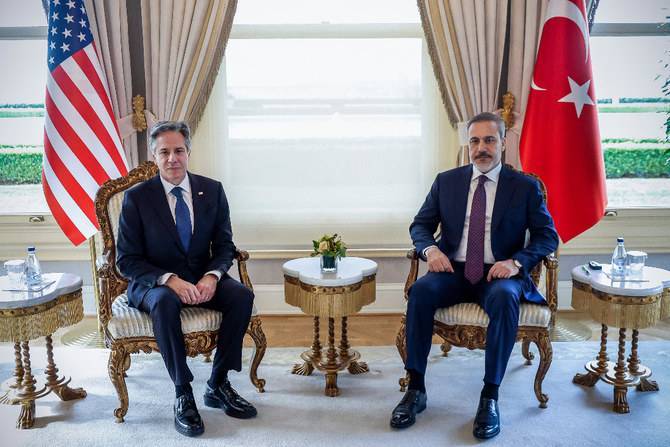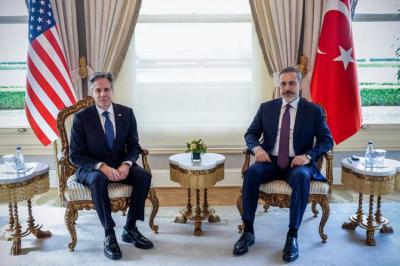The United States and Turkey are holding comprehensive talks today, Thursday, to discuss whether the two NATO member countries can overcome deep-rooted disagreements over issues such as Syria and Ankara's close relations with Russia. Senior U.S. and Turkish officials are set to meet at the U.S. State Department for several rounds of talks focused on topics including Syria, Russia's invasion of Ukraine, defense cooperation, energy, counter-terrorism, and the war between Israel and the Palestinian Islamic resistance movement (Hamas).
These talks, called the "Strategic Mechanism," are a precursor to a meeting tomorrow, Friday, between U.S. Secretary of State Antony Blinken and Turkish Foreign Minister Hakan Fidan. Relations between the United States and Turkey have cooled in recent years, moving away from a stage of strategic partnership as differences between the long-time allies widened.
Turkey's purchase of Russian S-400 missile defense systems in 2019 led to U.S. sanctions on Ankara, as well as its exclusion from the F-35 stealth fighter program. At the same time, Turkey has expressed significant discomfort with U.S. support for Kurdish groups in northern Syria, which Ankara considers an extension of the PKK, a militant group regarded as a terrorist organization.
The United States has also been displeased with Ankara's 20-month delay in approving Sweden's NATO membership, which was signed in January. Subsequently, the U.S. Congress approved a $20 billion sale of F-16 fighter jets to Turkey, a goal that the Turkish government has long sought. Since then, U.S. officials have begun expressing a desire from both sides to deepen discussions in areas where they can cooperate.
A senior U.S. official regarding the upcoming talks stated, "This is likely to be the most vital and positive strategic mechanism we have had in years." In late January, Democratic Senators Jeanne Shaheen and Chris Murphy, members of President Biden's party, visited Turkey and met with Erdoğan. Murphy later remarked that there is now "significant momentum" in the bilateral relations.




